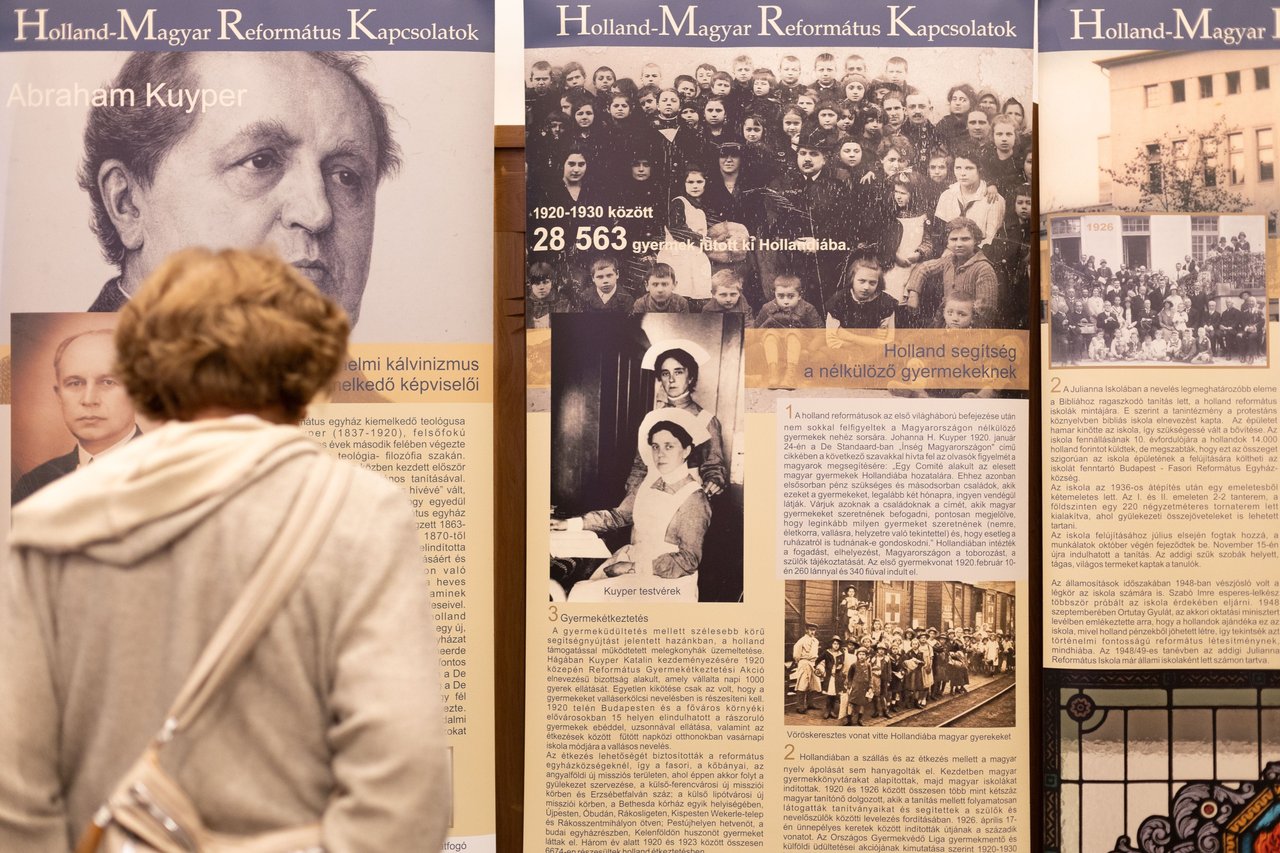"We owe our gratitude, thanks, and attention to those who have not forgotten and will not allow us to forget this link between Dutch and Hungarian Reformed Christians,” wrote Bishop Zoltán Balog in his letter of welcome to the launch of the book "Dutch-Hungarian Protestant Relations between the Two World Wars" by Maarten J. Aalders. The Kálvin Publishing House of the Reformed Church in Hungary and the Department of Church History of the Faculty of Theology of the Károli Gáspár Reformed University organized the event on 25 September.
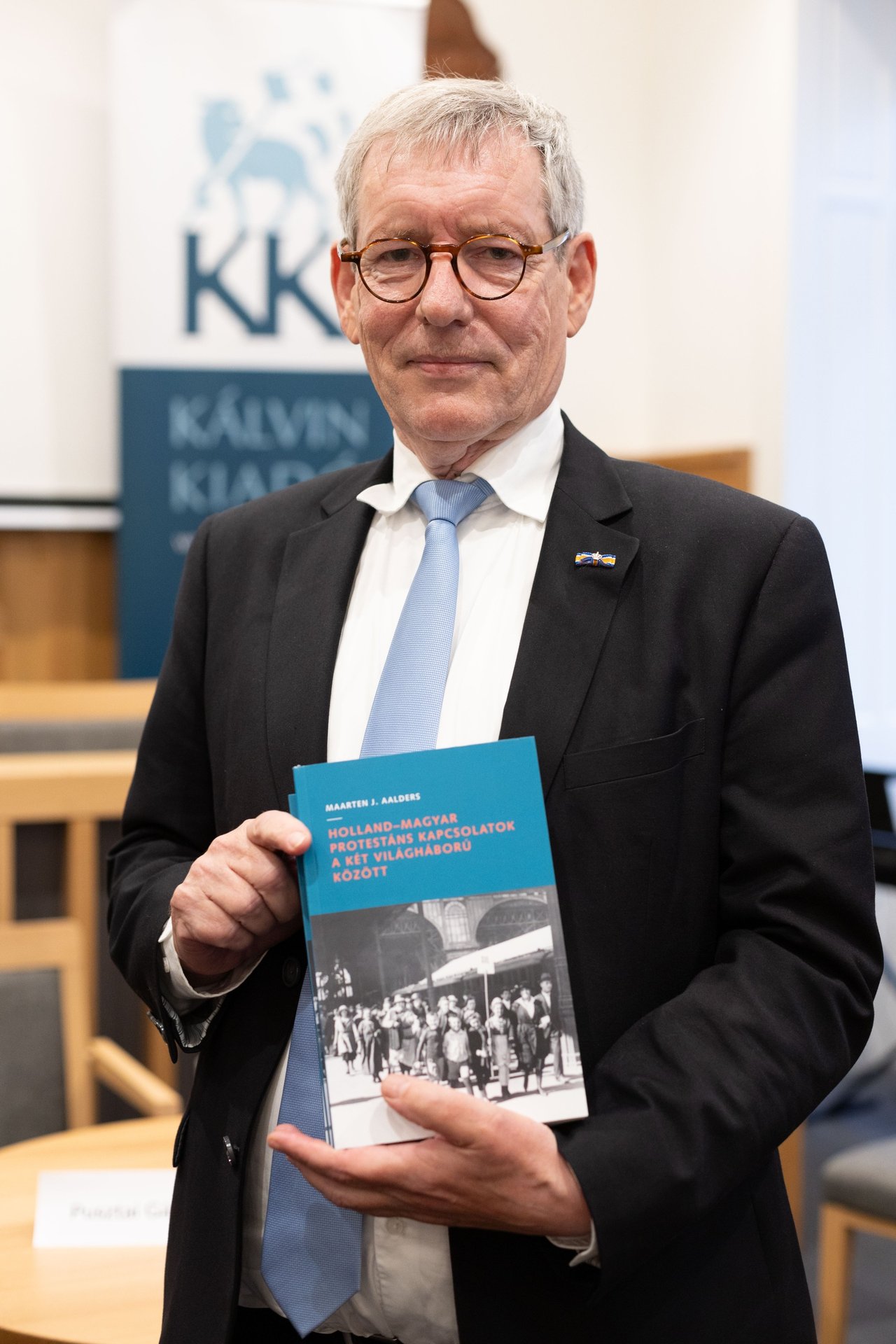
Maarten J. Aalders with the book
“There are many fathers of success, but I would like to mention two mothers," said Maarten J. Aalders in his opening speech, and thanked archivist Edit Nagy and Professor of Dutch Studies Orsolya Réthelyi for their help with research. Aalders shared that he scanned 1,300 letters and took 5,000 photos. He stressed that he had written about the subject from a Dutch perspective and encouraged his Hungarian colleagues to write about the history of Dutch-Hungarian Protestant relations between the two world wars from their own perspective. He also mentioned several issues that he could not tackle due to a lack of Hungarian knowledge, such as the mapping of theological relations in the 1920s or the problems surrounding children's homes.
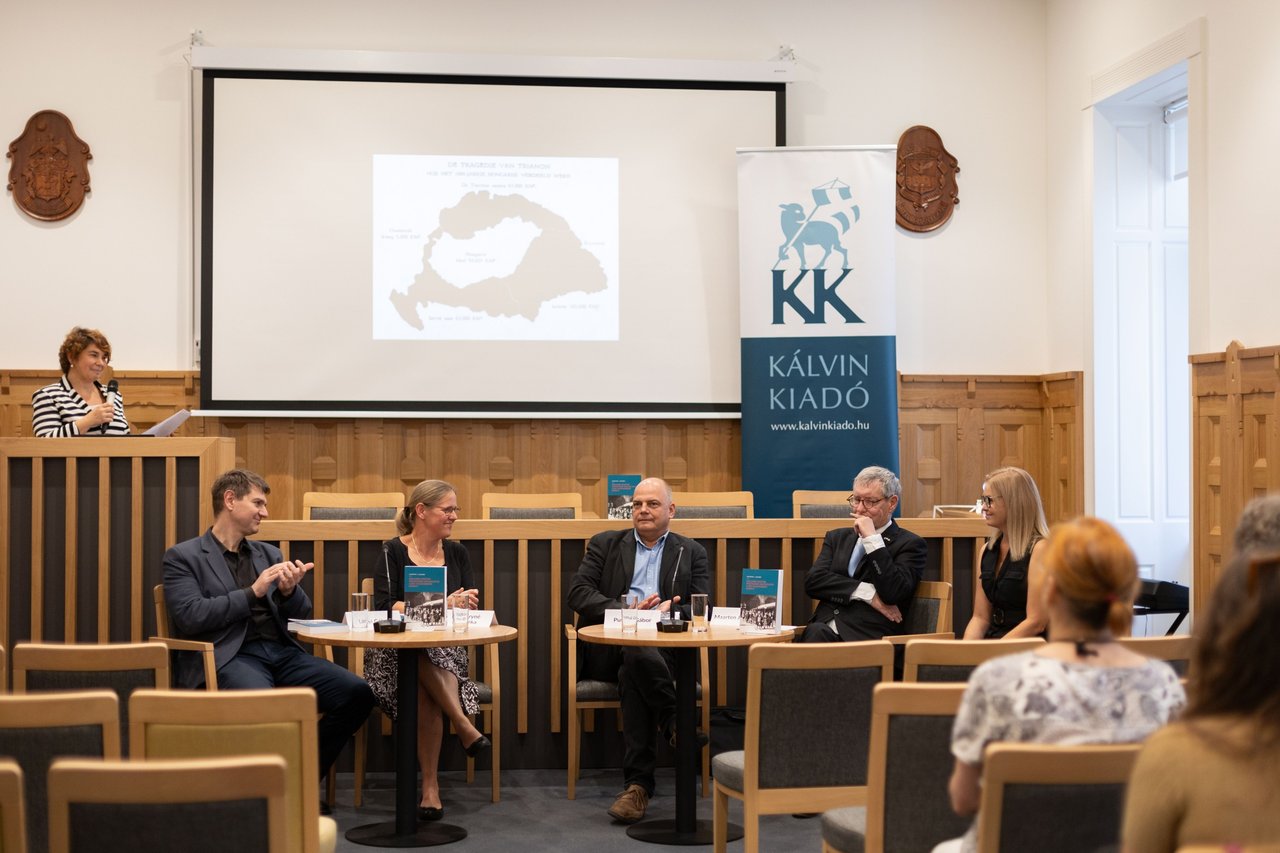
Dóra Hanula-Csordás presented the event. At the table from left to right: Gábor Lányi, Réka Földváryné Kiss, Gábor Pusztai, and Maarten J. Aalders
Maarten J. Aalders: Dutch-Hungarian Protestant relations between the two world wars. Translated by Sándor Téglásy. Kálvin Kiadó, Budapest, 2023.
The relationship between Dutch and Hungarian Protestants between the two world wars became much more intense than before. From 1920 onwards, trains with Hungarian children left for the Netherlands to strengthen their position there. The author deals with the circumstances and the most important actors of this and other relief actions and, based on detailed archival research, tries to map out all further important relations between the Protestant, mainly Reformed churches of the two countries. The present edition is a Hungarian translation of the volume originally published in the Netherlands in 2021.
The Dutch-Hungarian relationship is as old as the reformation
"When I heard the word Dutch as a child, it warmed my heart. I didn't think of football, I didn't think of tulips, I thought of those Reformed Christian brothers and sisters who tirelessly and systematically surveyed the lacking pastoral families and congregations of Central and Eastern Europe under Soviet occupation. They collected donations, organised support points and, most importantly, visited us personally with their large families in the farthest corners of the Carpathian Basin,” wrote Zoltán Balog, Bishop of the Danubian Church District, Ministerial President of the Synod, in his letter of greeting, which was read out on the occasion.
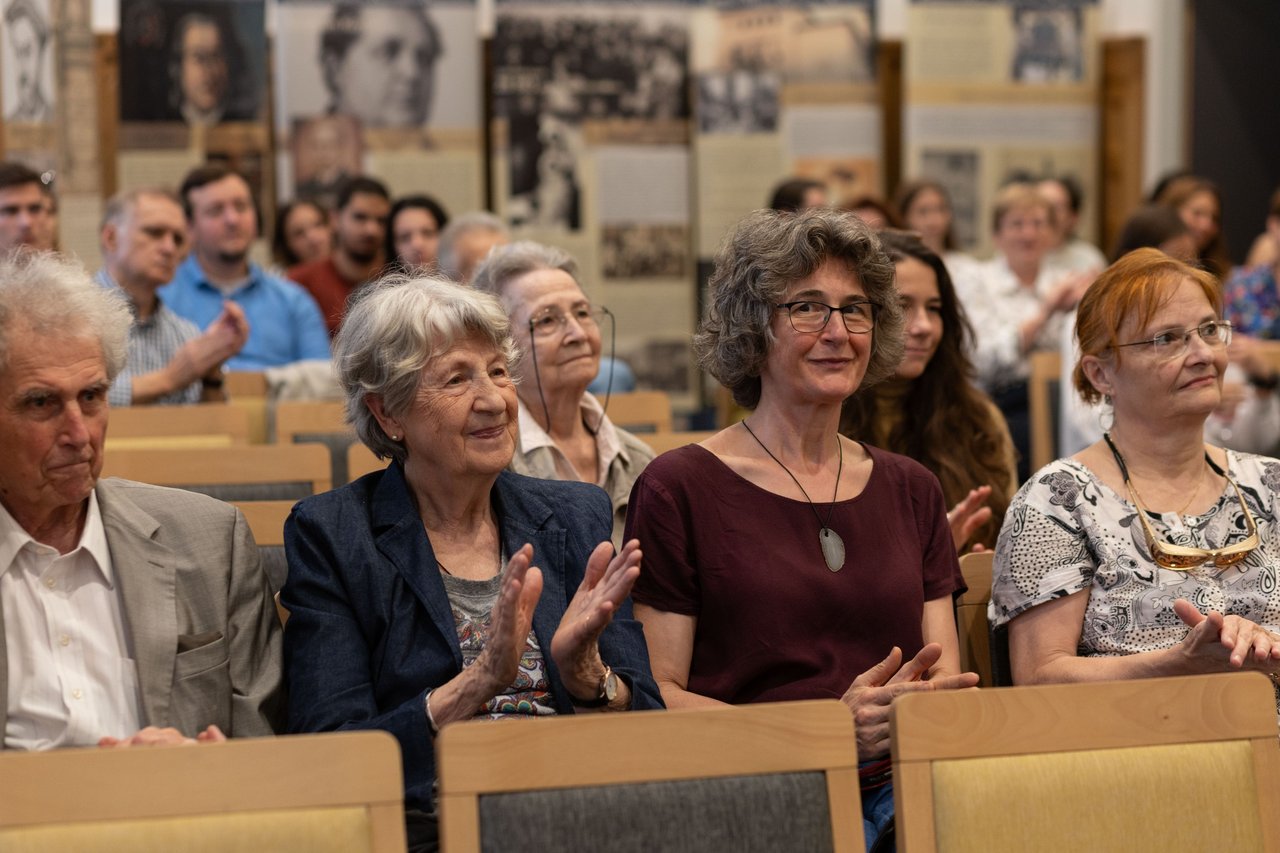
The Bishop recalled that this attention on the part of the Dutch, this encounter, this certainty of unity founded in Jesus Christ, is not without precedent; this relationship is ancient in the history of the European Reformation. "We owe a debt of gratitude, thanks, and attention to those who have not forgotten and will not allow us to forget this link between Dutch and Hungarian Reformed people. Maarten J. Aalders is one of them,” says Zoltán Balog in his letter. "It seems as if the freedom that replaces the apparent interdependence is driving us further apart rather than harnessing our historical experiences and released energies for the common spiritual and intellectual building. What can Dutch and Hungarian Calvinism offer one another today, at the beginning of the 21st century? How can we serve each other, enriching the good of the people entrusted to us and the glory of God? If we want to answer these questions, we need look no further than the book and research of Maarten J. Aalders for inspiration,” the Synod Pastoral President concluded.
Stories from Hungary through Dutch eyes
“The Dutch-Hungarian Protestant relations are self-evident, yet they are unexplored and mysterious in many areas. The book reveals a distinct period of this system of relations in a way that fills a gap,” said Gábor Lányi, church historian, Vice-Dean of the Faculty of Theology of the Károli Gáspár Reformed University (KRE HTK), the editor of the Hungarian edition of the book, in his speech praising the work.
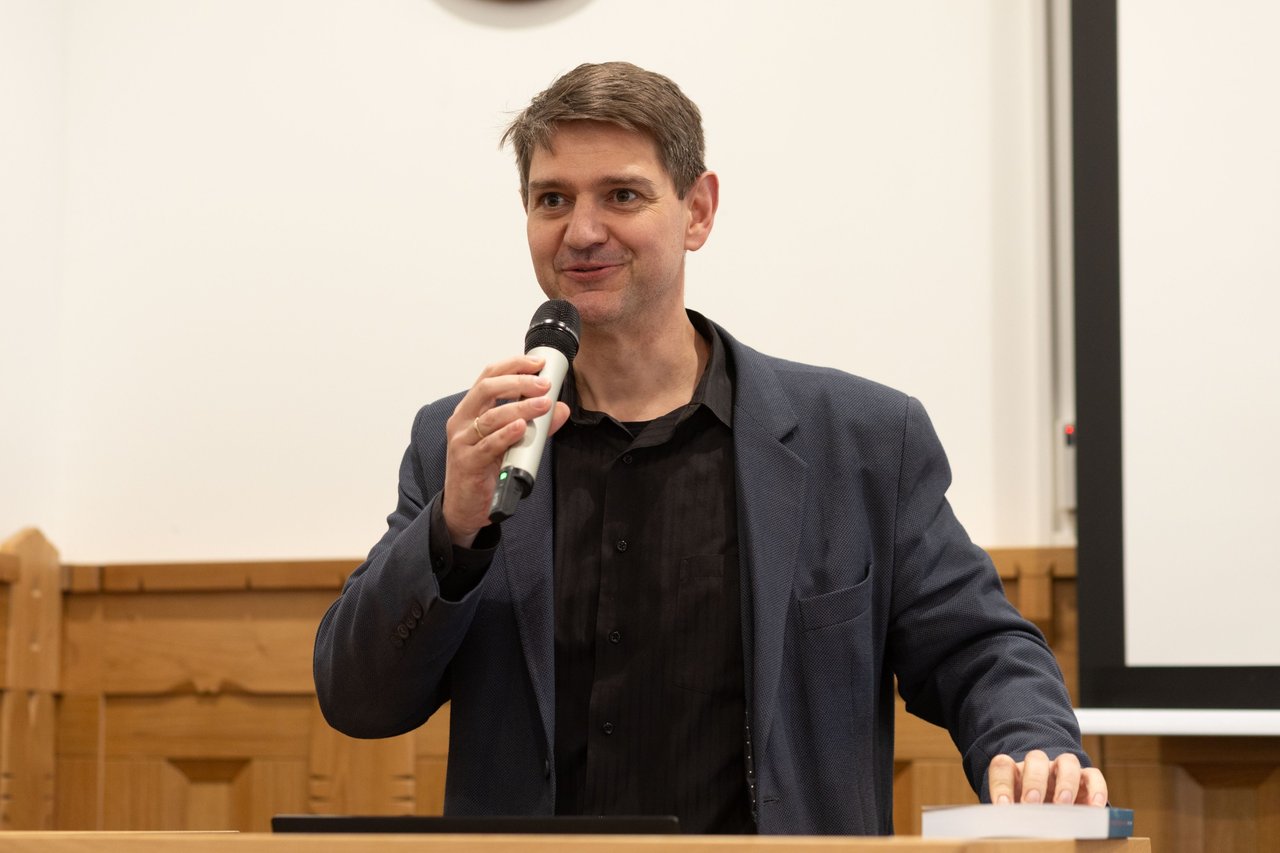
“The introduction to the book is also a kind of self-awareness course for us Hungarians,” said Gábor Lányi
However, he added that this is a relationship story written from a Dutch perspective. "The introduction is also a kind of self-awareness course for us Hungarians. We can learn how they look at ourselves and our history through Dutch eyes," said the Vice-Dean. He stressed that personal stories, such as the hospital mission of Abraham Kuyper and his children in Budapest, also play a big role in the book. It is a great achievement, which gives us, church historians, the lesson that if we have a sense of lack, we should go and add our own part to this picture", said Gábor Lányi, describing the volume.
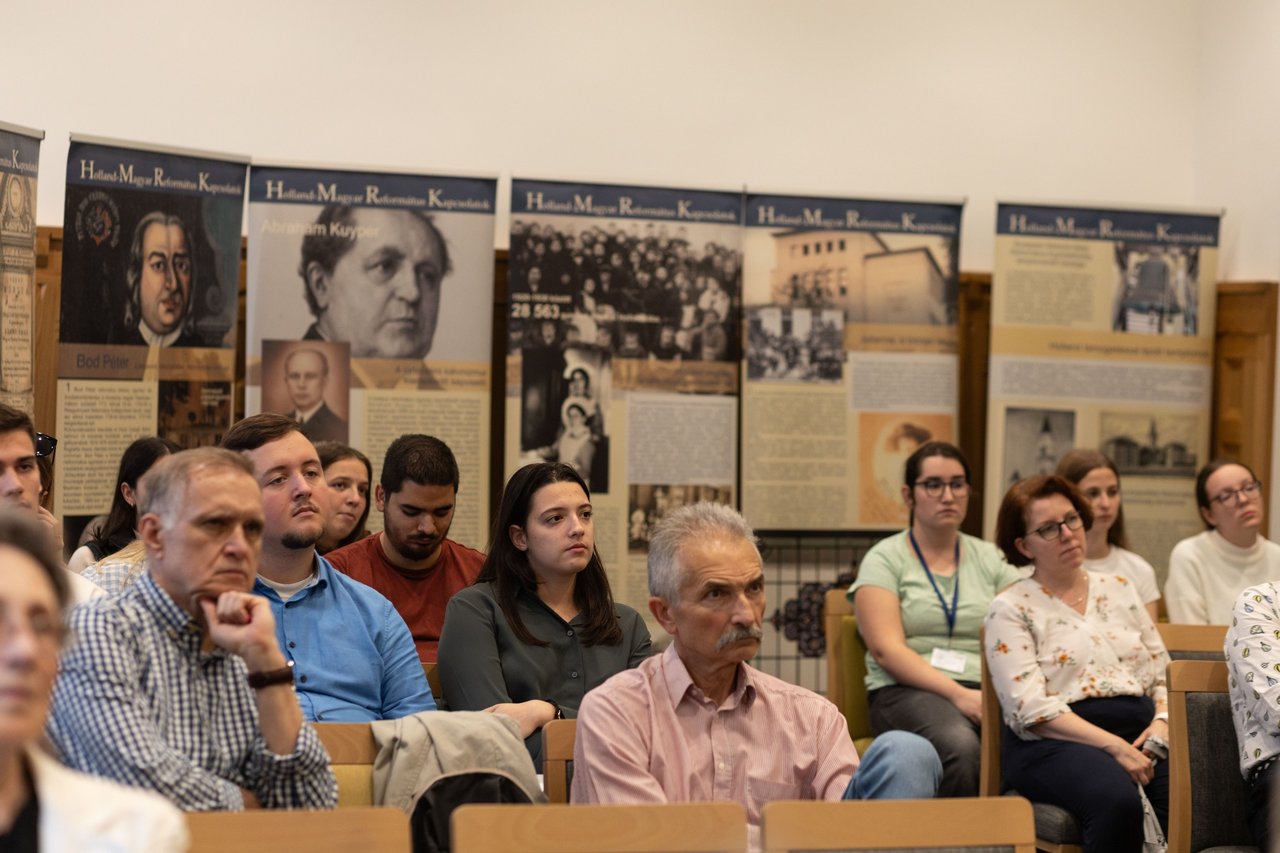
Maarten J. Aalders (1954), a theologian and researcher in church history, graduated from the Free University of Amsterdam (Vrije Universiteit Amsterdam). He has served as a pastor in Woubrugge and Amstelveen. Since 2018, he has been a research fellow at the Institute for Neo-Calvinism Research at the Theological University of Kampen.
A milestone that opens up a number of questions
Afterward, the author, Réka Földváryné Kiss, historian, head of the Department of Church History at the University of Debrecen, chair of the National Remembrance Committee, and Gábor Pusztai, literary historian, head of the Department of Dutch Studies at the Faculty of Humanities of the University of Debrecen, and editor of the Hungarian edition of the book, discussed the book.
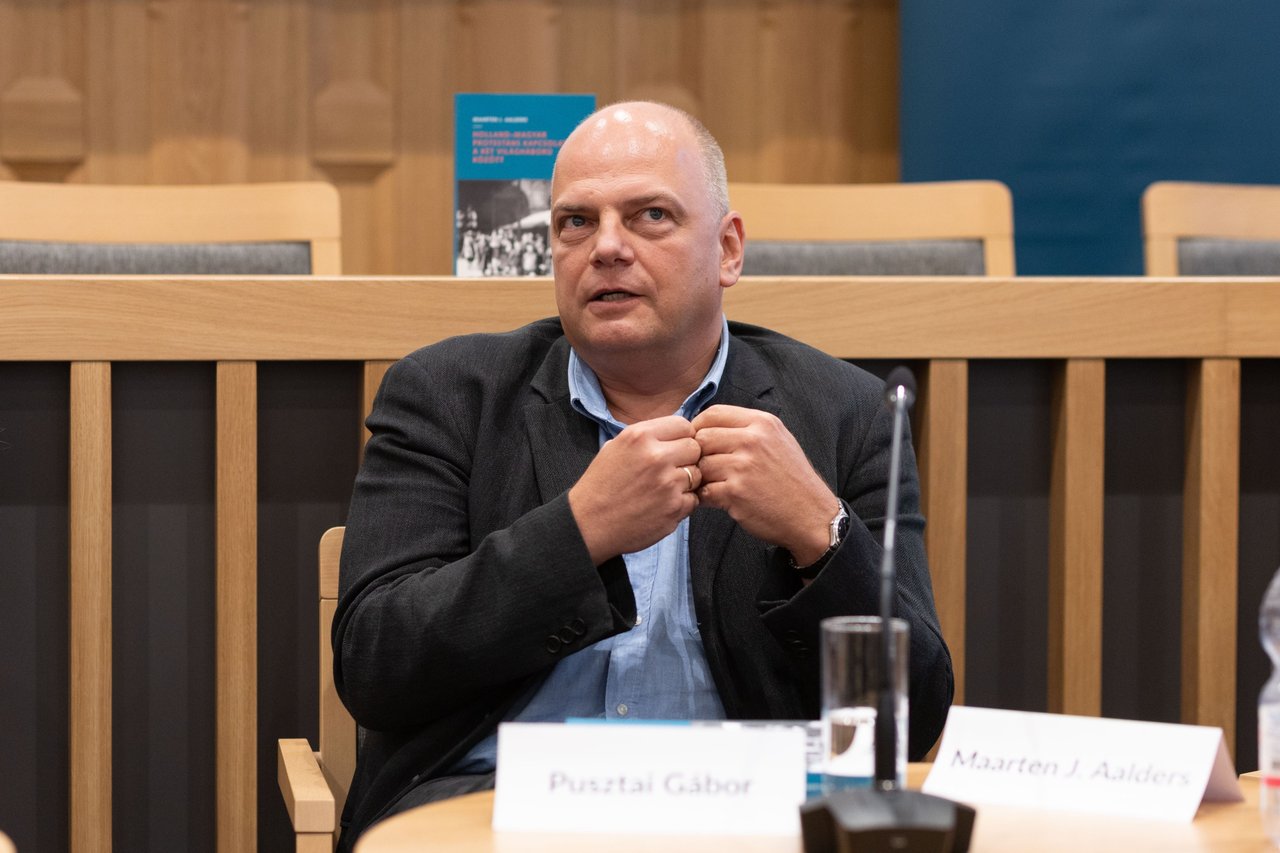
Gábor Pusztai: In the Netherlands, after the First World War, a social coalition was formed to help children suffering from the war
“The history of Dutch-Hungarian relations goes back a very long time, but if I had to highlight one period, it would be the period between the two world wars, which started with the launch of the children's trains,” said Gábor Pusztai. Though remaining neutral throughout the war, the Dutch wanted to help and provided starving Hungarian, German, French, and Austrian children suffering war trauma the opportunity to be placed with Dutch families. Gábor Pusztai recalled that the Dutch state did not organise the trains, instead, private individuals made a collective effort to bring 28,000 Hungarians to the Netherlands.
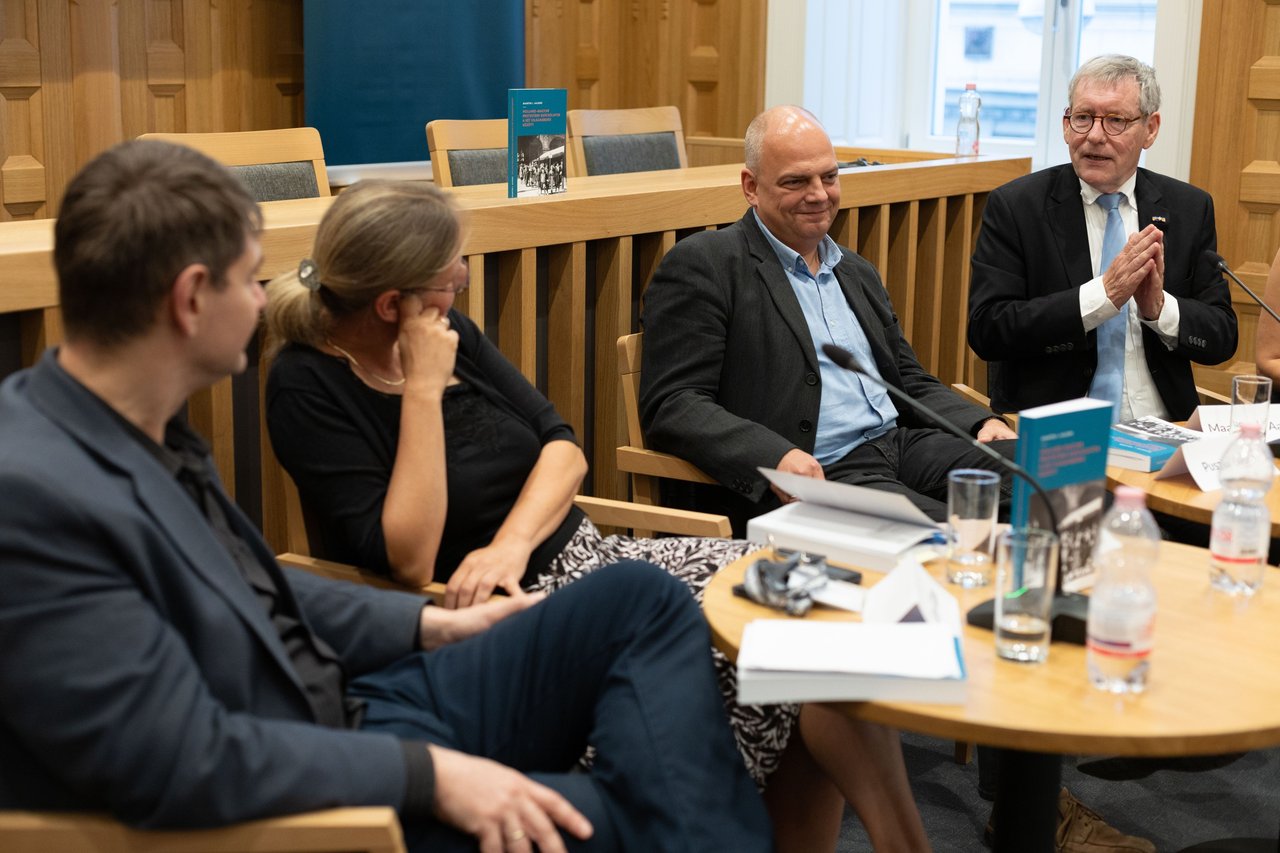
Maarten J. Aalders wrote what he could on the topic, then handed the ball over to Hungarian researchers to write more
Réka Földváryné Kiss drew attention to the fact that in the Hungarian Reformed culture of remembrance, the first thing that comes to mind about Dutch-Hungarian relations is peregrination, but this is completely missing from the introduction of the book because, from a Dutch perspective, it is either not important or not known. She believes the period between the two world wars should be included in the Hungarian public consciousness. Gábor Pusztai said that time should be allowed for this because research on the subject has only recently begun, as it was silenced after 1949.
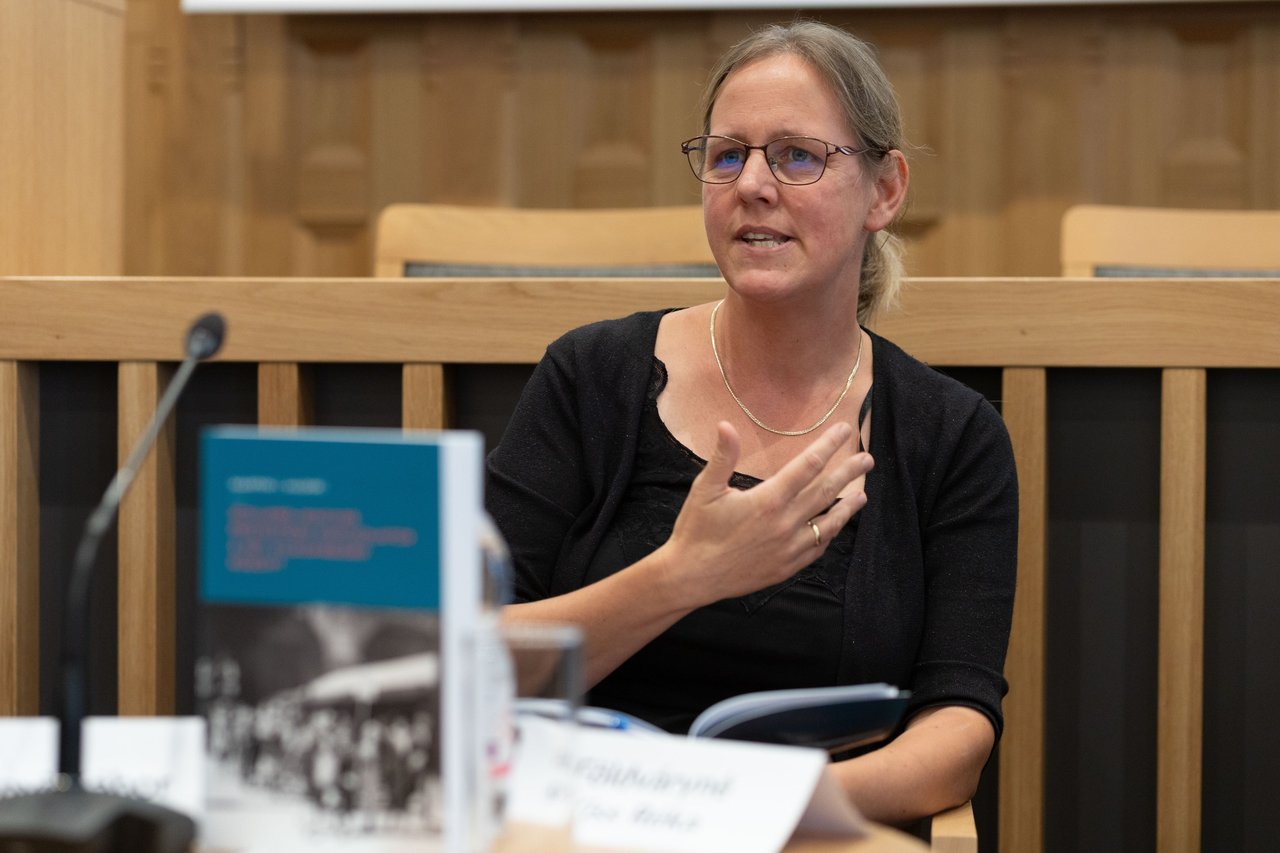
According to Réka Földváryné Kiss, a lot depends on how we can tell our own story abroad
“In the book, we can read about an incredibly important generation that defined the image of the church between the two world wars and a younger generation that could have defined the image of the church after the Second World War if not for what happened," said Réka Földváryné Kiss. She says this book is an important milestone because it raises so many questions that at least three other books could be written based on it.
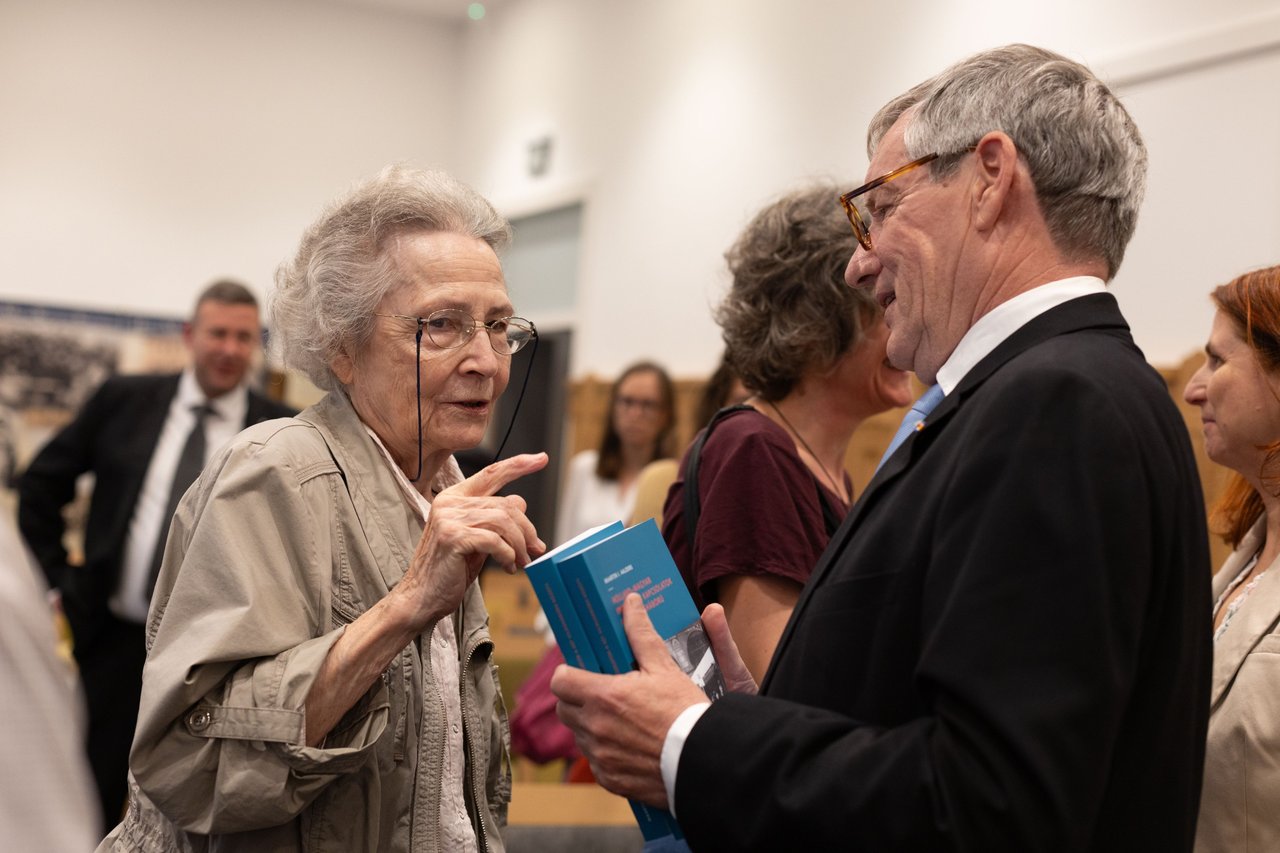
Asked what the Netherlands has gained from this aid, Maarten J. Aalders said that those who give always get a lot back. He said he was writing from the church line but that relations had been revitalised in many other areas. He added that he was critical of adoption campaigns and saw the work done in Hungarian children's homes as much more positive at the time. And will he write more on the subject? “I have done what research I can, but I am very keen to read what Hungarian colleagues write about it," said Marteen J. Aalders.
